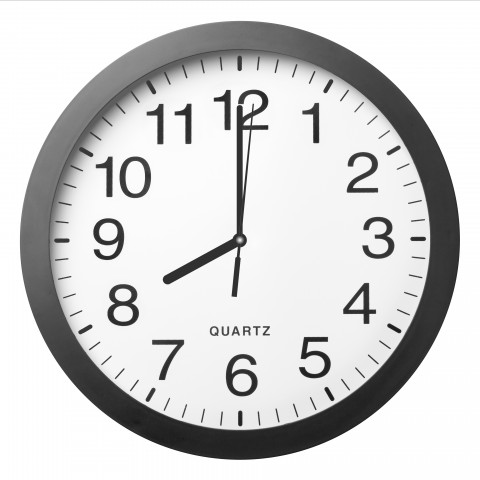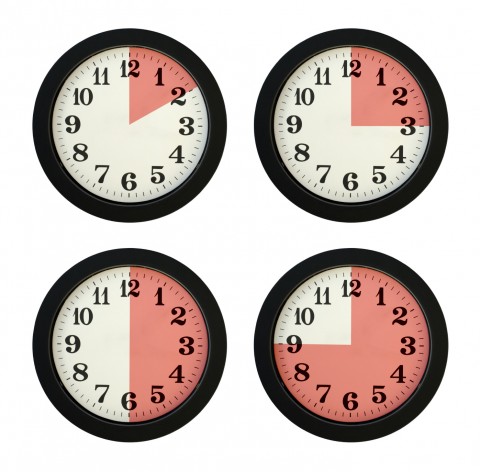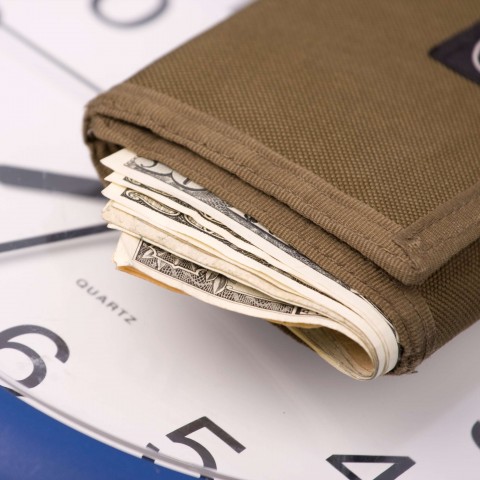
Looking for new ways to develop your Hungarian language knowledge? We at the HungarianPod101.com family believe that one of the best ways is to master the art of telling the time in Hungarian.
Knowing how to tell the time is essential if you want to succeed in speaking a foreign language, and telling the time in Hungarian is no exception. Whether you’re on the street, with a friend, in a business meeting, or at the airport, it’s vital for you to know how to tell the time in Hungarian.
That’s exactly why we’ve decided to put together a sweet guide which teaches you everything you’ll need on this topic. Read our article and learn everyday expressions, such as “a.m.” and “p.m.” in Hungarian, “o’clock” in Hungarian, and how to ask “What time is it?”
 Table of Contents
Table of Contents
- Asking for the Time in Hungarian
- Hours in Hungarian
- Minutes in Hungarian
- Partial Hours in Hungarian
- General Time Reference of the Day in Hungarian
- Time Adverbs in Hungarian
- Bonus: Time Proverbs and Sayings in Hungarian
- Conclusion: How HungarianPod101.com Helps You Master Hungarian
1. Asking for the Time in Hungarian
The standard Hungarian time zone is called CET (Central European Time). However, the country uses two different time zones during the year: CET in the winter, and CEST (Central European Summer Time) during the summer. The second time zone is the so-called “daylight saving time,” which in Hungarian is referred to as nyári időszámítás.
Hungarian time expressions are easy to master. After reading this article, you’ll soon find how easy it is to ask “What time is it?” in Hungarian. Let’s start with the most common time-related expressions:
- “What time is it?” (Mennyi az idő?)
- “Can I ask you what time it is?” (Megkérdezhetem, hogy mennyi az idő?)

Generally, there are a lot of expressions to ask for the time in Hungarian. The following example is also very common:
- “Could you tell the time, please?” (Meg tudná mondani az időt kérem?)
To specifically ask what time an upcoming event takes place, consider using the following sentence pattern:
- “What time is the meeting?” (Mikor kezdődik a meeting?)
- “What time is the party?” (Mikor kezdődik a buli?)
In these sentences, mikor kezdődik stands for “what time is” (literally meaning, “what time ___ starts”), whereas a meeting and a buli translate to “the meeting” and “the party” respectively. Basically, to ask for a starting time in Hungary, just begin the sentence with mikor kezdődik and put the name of the event at the end of the sentence.
Fancy learning more? Check out our list of the top fifteen questions you’ll need for Hungarian conversations.
2. Hours in Hungarian
Telling the time in Hungarian is much easier than in other languages, as Hungarians don’t use a.m. or p.m. Hungarians use the so-called twenty-four-hour military time, in which the day runs from midnight to midnight and is divided into twenty-four hours. In this case, instead of saying “three p.m.,” users of the twenty-four-hour clock say “15:00.” But don’t worry, Hungarians make it even easier than this!
In everyday conversations, Hungarian people don’t really care about these clock-related rules. They generally tend to say “It’s three o’clock” instead of using 03:00 or 15:00. The general suggestion is that in everyday conversations, everyone’s aware of which part of the day it is, so they can just make the whole time-topic a lot easier because of this.
So let’s see how to tell time in Hungarian using only the hours.
“Hour” – óra
‘I’m coming in just an hour.’ – Egy órán belül jövök.
In this sentence, ‘jövök’ means ‘I’m coming’, whereas ‘egy órán belül’ stands for ‘in just an hour’.
Now, let’s see a few examples of telling the time in Hungarian.

“O’clock” (óra)
“It’s three o’clock.”
Három óra van.
“One o’clock” (1 óra)
“It’s one o’clock.”
Egy óra van.
“Two o’clock” (2 óra)
“It starts at two o’clock.”
Kettő órakor kezdődik.
“Three o’clock” (3 óra)
“She comes at three o’clock.”
Három órára jön.
“Four o’clock” (4 óra)
“I woke up at 4 o’clock.”
Négykor ébredtem fel.
In the Hungarian language, you can either say négy órakor ébredtem fel, or make it shorter by saying négykor ébredtem fel.
“Five o’clock” (5 óra)
“The class starts at five o’clock.”
Öt órakor kezdődik a tanóra.
“Six o’clock” (6 óra)
“I’m having dinner at six o’clock.”
Hat órakor vacsorázom.
“Seven o’clock” (7 óra)
“He called me at seven o’clock.”
Hét órakor hívott fel.
“Eight o’clock” (8 óra)
“I’m tired at eight o’clock.”
8 órakor fáradt vagyok.
“Nine o’clock” (9 óra)
“Nine o’clock is too late.”
Kilenc óra túl késő.
“Ten o’clock” (10 óra)
“Don’t talk to me after ten o’clock.”
Ne beszélj hozzám 10 óra után.
In this sentence, ne beszélj hozzám means “don’t talk to me,” whereas 10 óra után stands for “after ten o’clock.”
“Eleven o’clock” (11 óra)
“I’ll come at eleven o’clock.”
11 órára fogok jönni.
“Twelve o’clock” (12 óra / dél / éjfél)
“I’m already sleeping at twelve o’clock.”
12 órakor már alszom.
For more Hungarian numbers, visit our vocabulary list.
3. Minutes in Hungarian
How do you say “minute” in Hungarian? Or “second?” Continue reading to find out!
“Minute” (perc)
“It only takes a minute.”
Csak egy percbe telik.
In this sentence, csak egy percbe means “only (in) a minute,” whereas telik stands for “takes.”
“3:18” (3 óra 18 perc)
“It starts at 3:18.”
3 óra 18 perckor kezdődik.
“Second” (másodperc)
“You have five seconds.”
5 másodperced van.
4. Partial Hours in Hungarian
To master the topic of numbers and time, it’s essential to know how to say partial hours in Hungarian. For example, how do you say “half past eight?”
Fancy mastering how to tell time in the Hungarian language? If your answer is yes, you really don’t want to miss this section.

“Half” (fél)
“It’s half past seven.”
Fél 8 van.
This is a bit tricky, as in Hungarian, “half” (fél) refers to the hour ahead and not the current hour. You can check out this page if you ever get confused.
“Quarter past” (negyed)
“It’s a quarter past three.”
Negyed 4 van.
Again, you might be wondering: “What?” Don’t worry, we’ve got your back!
Please remember that when talking about partial hours, Hungarians always refer to the next hour.
So if they want to say “3:15,” they say negyed 4, which translates to “quarter past three.” Half past seven is fél 8, as 8 is the next hour; “a quarter to nine” is háromnegyed 9, just as in the following example.
“Quarter to” (háromnegyed)
“The show starts at a quarter to nine.”
Az előadás háromnegyed 9-kor kezdődik.
Too complicated? It’s okay. If you think this system is just too complicated to learn, you can always say “3:15” or “3:30” instead of using these Hungarian words for partial hours.
5. General Time Reference of the Day in Hungarian

As you saw in the previous examples, telling the time in Hungarian is pretty easy. The Hungarian time format is tied to the twenty-four-hour clock. So if you want to note which part of the day you’re talking about, just use “in the morning” or “in the afternoon.”
“A.M.” (délelőtt)
“It’s nine a.m.”
Délelőtt 9 óra van.
“P.M.” (délután)
“Let’s meet at five p.m.!”
Találkozzunk délután 5-kor!
“Early morning” (kora reggel)
“I wake up early in the morning.”
Kora reggel kelek fel.
“Sunrise” (napfelkelte)
“Let’s watch the sunrise!”
Nézzük meg a napfelkeltét!
In this sentence, nézzük meg means “let’s watch,” and a napfelkeltét translates to “the sunrise.”
“Noon” (dél)
“I’m coming at noon.”
Délre jövök.
“Early afternoon” (kora délelőtt)
“Let’s meet in the early afternoon!”
Találkozzunk kora délelőtt!
“Evening” (este)
“Let’s meet at seven in the evening.”
Találkozzunk este 7-kor.

“Sunset” (naplemente)
“I want to watch the sunset.”
Meg szeretném nézni a naplementét.
“Night” (éjszaka)
“I suddenly woke up at night.”
Éjszaka hirtelen felébredtem.
6. Time Adverbs in Hungarian

There are also some time-related adverbs you have to learn to fully master telling time in Hungarian.
“Right now” (most)
“It starts right now.”
Most kezdődik.
“Currently” (jelenleg)
“I’m single currently.”
Jelenleg egyedülálló vagyok.
In this sentence, egyedülálló vagyok means “I’m single.” To learn more about marital status and family in Hungarian, check out this resource.
“Meanwhile” (közben)
“I had meanwhile found another pen.”
Közben találtam egy másik tollat.
“Before” (előtt)
“Let’s meet before nine.”
Találkozzunk 9 óra előtt.
“After” (után)
“Let’s do the homework after school.”
Végezzük el a házi feladatot az iskola után.
“Soon” (hamarosan)
“See you soon!”
Hamarosan találkozunk!
“Almost” (majdnem)
“I almost got hit by the car.”
Majdnem elütött az autó.
In this sentence, majdnem means “almost,” whereas elütött translates to “got hit.”
“Anytime” (bármikor)
“I can help you anytime.”
Bármikor tudok segíteni.
“As soon as possible” (amint csak lehet)
“I’m coming as soon as possible.”
Jövök, amint csak lehet.
Interestingly, there’s no short form of “as soon as possible” in the Hungarian language, and thus no Hungarian counterpart of ASAP.
7. Bonus: Time Proverbs and Sayings in Hungarian
Now that we’ve gone through all the essential phrases and expressions, there’s only one thing left: to learn some time proverbs and sayings in Hungarian. Hungarian time expressions aren’t too commonly used in everyday conversations; however, in some situations, they might come in handy.

- “Time is money.” (Az idő pénz.)
- “Time flies.” (Repül az idő.)
- “Time heals all wounds.” (Az idő minden sebet meggyógyít.)
- “Daylight saving time” (nyári időszámítás)
- “Wintertime” (téli időszámítás)
Of course, there are a number of other Hungarian phrases, so if you’re interested in learning more, you should definitely check out this list. Fancy learning how to say hello in Hungarian? Check out our vocabulary list or read our blog post about how to confidently introduce yourself in Hungarian!
8. Conclusion: How HungarianPod101.com Helps You Master Hungarian

Now you can see that telling the time in Hungarian isn’t as complicated as you might have thought.
With the help of this guide, you’ve learned the most common Hungarian time expressions, how to talk about hours and minutes in Hungarian, and how to tell the time in Hungarian.
Learning new words, expressions, and sentences in Hungarian is always fun. If you think you need help, don’t hesitate to join the HungarianPod101 family—we’ll support your language learning journey with useful resources.
So, how do you say “What time is it?” in Hungarian? Let us know in the comments!













